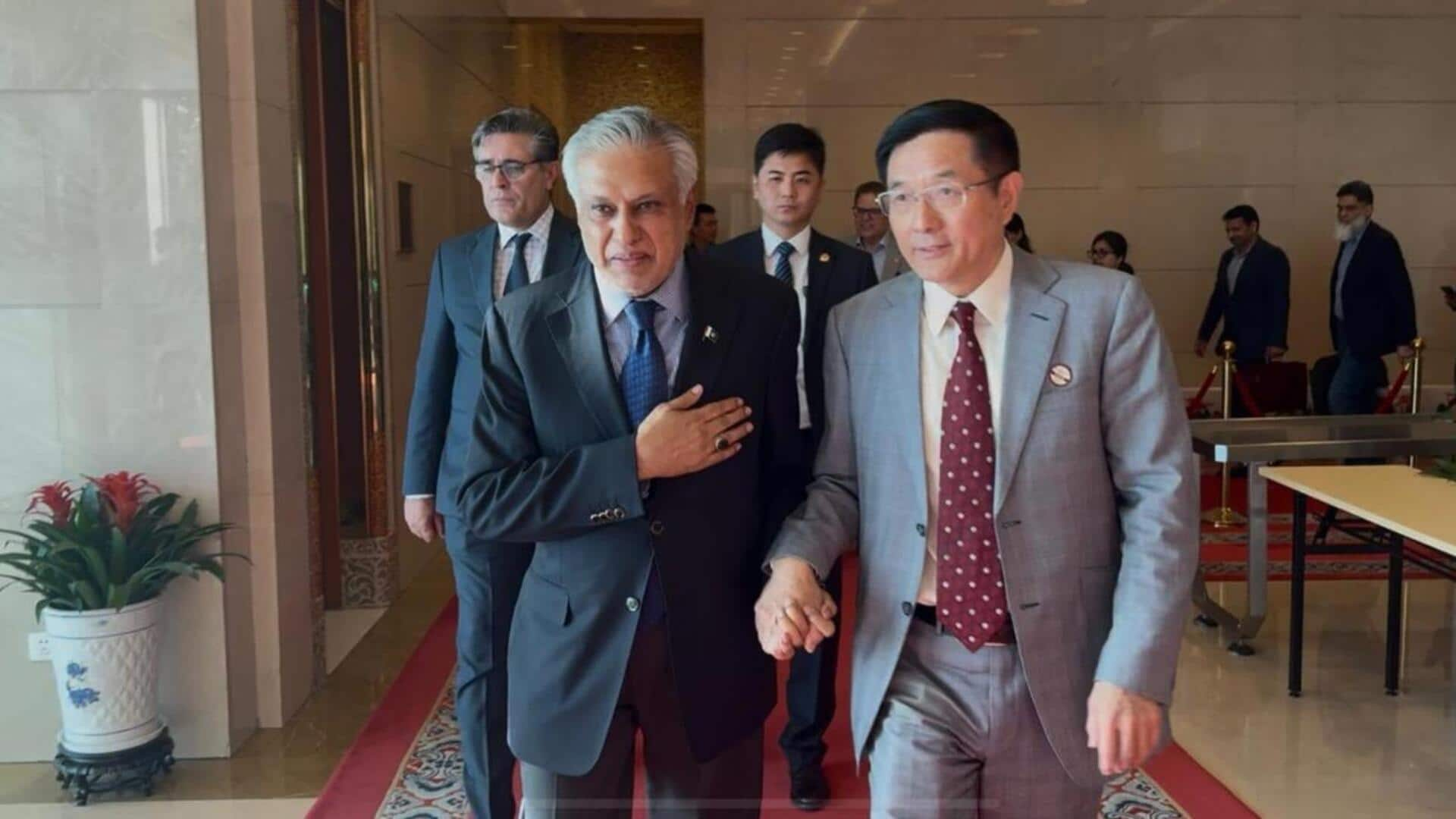
Pakistan's FM in China; Islamabad-Beijing expected to discuss security cooperation
What's the story
Pakistani Foreign Minister Ishaq Dar is on a three-day visit to China, where he is expected to discuss deepening defense and security cooperation. The visit comes after recent military tensions with India and is likely to be seen by New Delhi as a show of support for Islamabad. Dar's itinerary includes talks with Chinese Foreign Minister Wang Yi and participation in a trilateral foreign minister-level strategic dialogue with Afghanistan's acting foreign minister.
Defense collaboration
China, Pakistan's growing defense ties post-conflict
The visit is expected to further strengthen the defense ties between China and Pakistan. This comes after recent military conflicts where Pakistan reportedly shot down French-designed Rafale aircraft using Chinese-made J-10C fighters with active radar-guided long-range air-to-air PL-15 missiles. Lin Minwang, a professor at Fudan University, said both nations are likely to show "heightened enthusiasm and initiative" to deepen their military collaboration after these developments.
Diplomatic significance
Dar's visit marks 1st overseas trip since India-Pakistan conflict
Notably, Dar's visit is his first overseas trip after the military tensions with India. The timing of the visit has raised eyebrows in New Delhi, which may see it as a show of support for Pakistan. However, analysts believe that this trip was probably arranged well before the conflict broke out between India and Pakistan.
Arms
Pakistan imported 81% of its arms between 2020-2024 from China
According to Lin, Dar's visit will also include crisis management and coordination for the Pakistan-India conflict, which could erupt again. "Beijing and Islamabad will no doubt exchange information and insights regarding this regional flashpoint, given that the conflict has not yet fully de-escalated," he added. China is one of Pakistan's biggest military arsenal suppliers. Chinese weaponry accounted for 81% of its arms imports between 2020 and 2024, according to the Stockholm International Peace Research Institute.